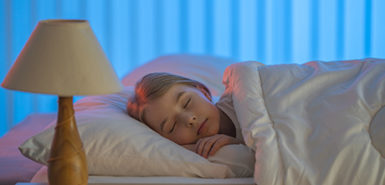
Seems that you can get too much—as well as too little—of a good thing when it comes to sleep.
In what’s billed as the world’s largest sleep study, too little or too much sleep can impair your brain, researchers report.
The study included more than 40,000 people worldwide who completed an online survey and a series of tests of mental abilities such as reasoning, memory and verbal skills.
Those who slept an average of seven to eight hours a night did better than those who got more or less sleep a night, preliminary results show. About half of the participants said they typically slept less than 6.3 hours a night.
Our Take
If you want to ensure an optimal sleep routine, Leisha Cuddihy, PhD, offers some tips.
Try these approaches each night before bed:
- Turn off electronics. This includes cell phones, tablets, TV, any technology. It’s best to keep this stuff out of the bedroom altogether. Dr. Cuddihy’s ironclad rule: “An hour before bed, all that should be turned off and not turned on again until you wake up in the morning.”
- Set a sleep schedule. Go to bed at the same time each night and wake up at the same time every morning.
- Make a list. Hours before bed, purge your mind of what you suspect will nag at you in bed. Write down the shopping list for tomorrow, the to-do items, the bright idea you’ve been tossing around. Don’t take those thoughts to bed.
- Quiet your mind. Practice mindfulness—be present in the moment and let go. “It’s one of the skills I sometimes teach patients who are having a lot of racing thoughts,” Dr. Cuddihy said. “Instead of honing in on those thoughts and following them where they go, separate yourself from them and focus internally on your breathing.”
The researchers noted a number of surprising findings. Most people who slept four hours or less performed as if they were almost nine years older, and the amount of sleep associated with the best test results was the same for all ages.
Reasoning and verbal abilities were two of the mental skills most strongly affected by sleep, while short-term memory was relatively unaffected by sleep patterns, the researchers said.
There was some evidence that even a single night’s sleep can affect thinking abilities. Participants who slept more than usual the night before taking the tests did better than those who slept their usual amount or less.
The study was published Oct. 9 in the journal Sleep.
“We really wanted to capture the sleeping habits of people around the entire globe. Obviously, there have been many smaller sleep studies of people in laboratories, but we wanted to find out what sleep is like in the real world,” said study co-author Adrian Owen, a researcher in Cognitive Neuroscience and Imaging at the University of Western Ontario, Canada.
“People who logged in gave us a lot of information about themselves. We had a fairly extensive questionnaire and they told us things like which medications they were on, how old they were, where they were in the world and what kind of education they’d received because these are all factors that might have contributed to some of the results,” Owen explained in a university news release.
Study lead author Conor Wild, a research associate in Owen’s lab, said, “We found that the optimum amount of sleep to keep your brain performing its best is seven to eight hours every night, and that corresponds to what the doctors will tell you need to keep your body in tiptop shape, as well.”

 /a>
/a>
 /a>
/a>
 /a>
/a>